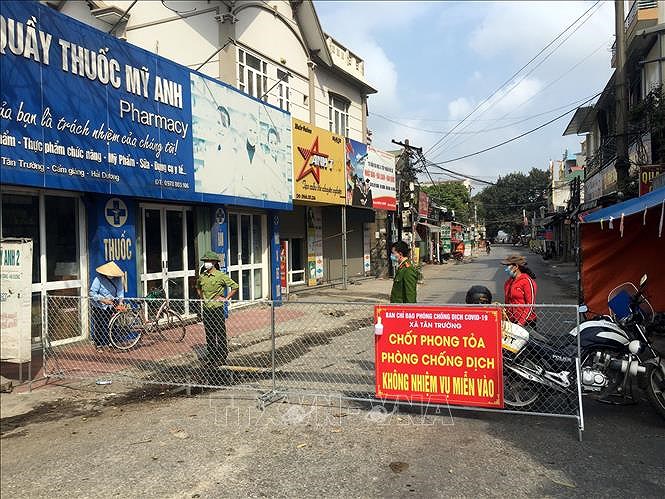Vietnam’s clear and drastic measures in COVID-19-related quarantine and contact tracing have help it overcome the third wave of outbreaks in less than two months, according to an article by German journalist Johannes Giesler, which was recently published on the news site Yahoo Nachrichten.
 A lockdown site in Hai Duong province, which endured the hardest of the third wave of COVID-19 outbreaks in Vietnam (Photo: VNA)
A lockdown site in Hai Duong province, which endured the hardest of the third wave of COVID-19 outbreaks in Vietnam (Photo: VNA) Vietnam’s clear and drastic measures
in COVID-19-related quarantine and contact tracing have help it overcome the
third wave of outbreaks in less than two months, according to an article by German
journalist Johannes Giesler, which was recently published on the news site Yahoo
Nachrichten.
The author noted Vietnam has to date recorded about 2,500
infections and 35 deaths. He said to attain these positive figures, Vietnam has
implemented a zero COVID-19 strategy aiming to end the pandemic rather than
just controlling it.
He said, to cut the number of infections, Vietnam has
imposed strict restrictions for weeks without any exceptions. When local life
comes back to normal, it is easier for contact tracing work to be done, he
added.
According to the article, Vietnam’s success in repelling the
second wave of outbreaks helped it to react more quickly and effectively to the
third wave which began at the end of January.
Giesler also cited a study from the Oxford University that attributed
Vietnam’s success to having a strong health sector, a decisive Government, and
an active prevention strategy, which is based on large-scale COVID-19 testing
and strict quarantine and contact tracing.
The article pointed out that the Vietnamese Governments can quickly
pass anti-epidemic decisions in just a few days, while in other countries it
can take weeks. Its initial measures, such as wearing a mask in public,
adjusting social life, and restricting mobility were even in place before the
first case of COVID-19 was confirmed in in the nation. Not long after that,
Vietnam closed schools, restricted entry from China and the Schengen region,
and canceled a series of major events. Such early and drastic decisions were
made when Vietnam recorded only five cases, it stressed.
In addition, Vietnamese people have been well aware of the
importance of sanitary and epidemiological measures, while the country has the
infrastructure available for bulk isolation. As of the end of last year, 10.2
million people in Vietnam had practiced quarantine, of which about 50 percent did
it in public facilities.
According to the author, in Vietnam, there were hardly any
debates about herd immunity, rallies where people did not wear masks and kept
minimal distance, or doubts about the effectiveness of vaccination or sanitary
and epidemiological measures./.